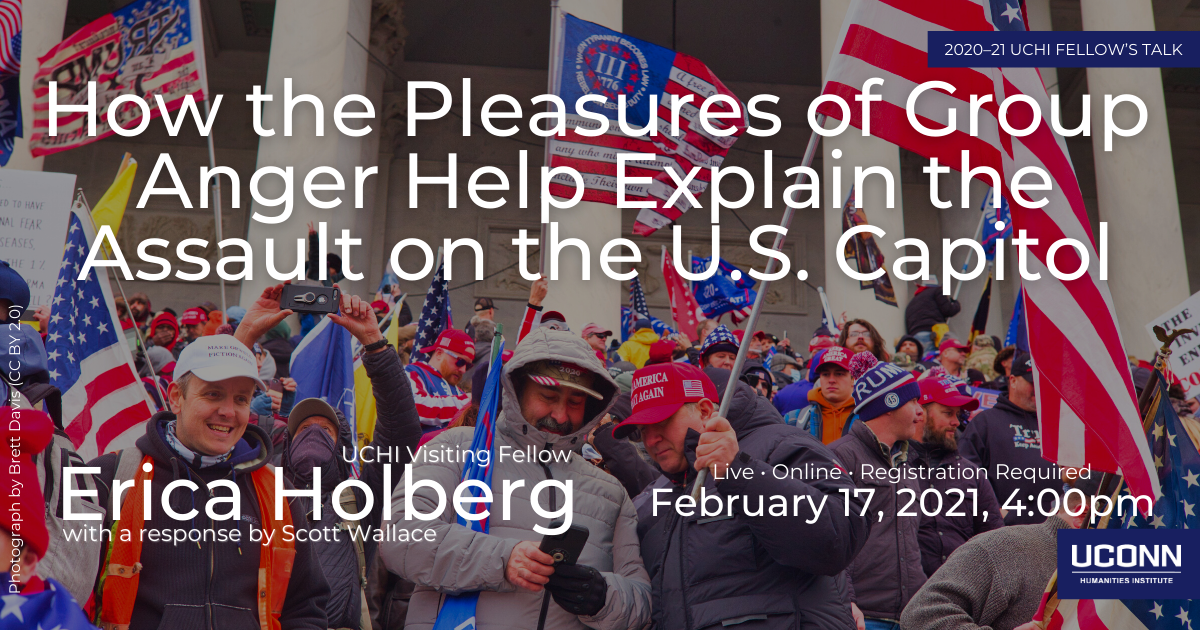How the Pleasures of Group Anger Help Explain the Assault on the U.S. Capitol
Erica Holberg (Visiting Fellow, UCHI)
with a response by Scott Wallace
Wednesday, February 17, 2021, 4:00pm (Online—Register here)
If one thing is clear about the January 6th assault on the U. S. Capitol, it is that no one description adequately captures who the participants were, the action they committed, and the motivation for their actions. This talk will focus on an incoherence that many of the participants evinced about what they were doing, how to accomplish their aims, and to what extent their actions were justified. I will argue that we can better understand the actions of some significant portion of the participants in seeing how the logic of anger, which is grounded in how anger functions for individual angry agents, collided with practices of group anger, which is structured differently, being more like pleasurable, leisurely, angry play. Individual anger, in its normal functioning and in order to be taken seriously as anger by others, exerts practical pressure: the point of individual anger as process is to secure redress for the wrong suffered, including revenge upon the wrongdoer. But group anger as activity is different: because we are all feeling angry as a group, I do not, on my own, need to act to resolve this anger. In the assault on the Capitol the rhetorical practices of group anger as an activity joined with the practical and temporal features of individual anger as a process, with horrific results.
Erica A. Holberg is a virtue ethicist who uses the historical, ethical theories of Aristotle and Kant to examine our own virtues, vices, conception of pleasure, and account of how pleasure matters for good living. Her research sets aside the question of what pleasure is to focus instead on how pleasure functions in our lives, for better or for worse. She is the 2016 recipient of the North American Kant Society’s Wilfrid Sellars Essay Prize for the best paper on Kant by an untenured scholar, and her work has appeared in The Southern Journal of Philosophy, Kantian Review, and Polis: The Journal for Ancient Greek and Roman Political Thought. Her UCHI Fellowship project is a book about the pleasures of anger, and how the phenomenology and practical considerations differ for anger done as an individual or anger done as a group.
Scott Wallace is an award-winning writer and photojournalist who covers the environment and endangered cultures. He is an Associate Professor of Journalism at the University of Connecticut since 2017 and an Affiliate Faculty member at El Instituto. Wallace is a frequent contributor to National Geographic. His work has also appeared in Harper’s, Grand Street, Smithsonian Journeys Quarterly and many others. Notable Publications: The Unconquered: In Search of the Amazon’s Last Uncontacted Tribes (Crown, 2011); “Threatened by the Outside World,” National Geographic, November 2018; “The last stand of the Amazon’s Arrow People,” New York Times, September 27, 2017.
Registration is required for the event.
If you require accommodation to attend this event, please contact us at uchi@uconn.edu or by phone (860) 486-9057.
Watch now:


